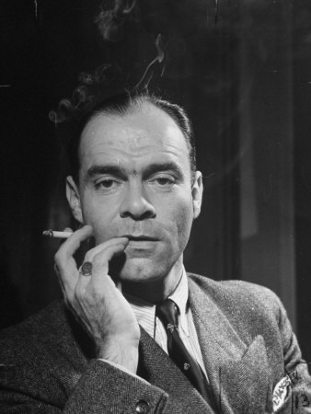First written in 1938 and revised and enlarged in 1954, Love in the Western World is part history, part cultural analysis of the concept of romantic (or passionate) love in the West and its relationship (in the author’s view a hostile one) to marriage. De Rougement’s basic argument is that the exaltation of passion occurred in the poetry of the troubadours of southern France in the twelfth and thirteenth centuries and that they were influenced by the contemporary dualist form of Christianity known as Catharism, considered heretical by the Roman Catholic Church. In fact a bloody crusade was launched against them by Pope Innocent III in 1209, which de Rougement (no supporter of the Cathars) does not hesitate to label as “genocide”. The Cathars believed that the material world was created by an evil demiurge and that human beings were souls entrapped in their bodies. They believed that there was hope of escape and reunification of the soul with its spirit (which remained in Heaven). The Cathars did not think that Jesus was an incarnate god but rather that he took on the semblance of human nature, Living properly in this life (which included, in part, pacifism and vegetarianism) meant that death was an escape from the evil material world. There were ordinary Catharist believers who generally married and the Perfect who led celibate lives. De Rougement argues that the courtly love tradition of the troubadours, wherein the ideal knight was devoted to his lady but never was supposed to consummate this love sexually, was symbolical of Cathar beliefs including the denigration of procreation and marriage. and that the obstacles to the love of knight and lady related in their writings symbolize the ultimate obstacle of death. Passion that leads to death symbolizes the Cathar attempts to escape the wicked material world for the sake of love for the Divine.. De Rougement further argues that these early ballads have influenced the modern concept of romantic love being the highest (or only valid) basis of marriage. According to de Rougement, Cathar doctrine is debased and distorted by the modern cult of romantic love which values passion over commitment (and thus implicitly at least approves of adultery) while the bourgeois form of marriage is a diluted form of Christian wedlock. Thus the irony that the old antagonism between Christianity and Catharism has now led to a quarrel between a pallid version of the former and a perversion of the latter.
De Rougement (1906-1985) was a leading Swiss intellectual and far from simpleminded. His analysis of various literary works can be fascinating. He does not think the weakening of marriage is due solely to the influence of an unremembered dualist religion. He also acknowledges that the social structures that encourage marriage have largely become undone and seems to think this is a good thing because now marriage depends upon the decisions of individuals, In this he shows himself, I think,, influenced by existentialist philosophy. Indeed he often cites Soren Kierkegaard, the founder of Christian existentialism. He thinks that it is impossible to argue with passion because passion rejects reason. Despite all this, the author ends on a note of hope. Whether or not one regards this hope as realistic, the book is a highly intriguing brew.


